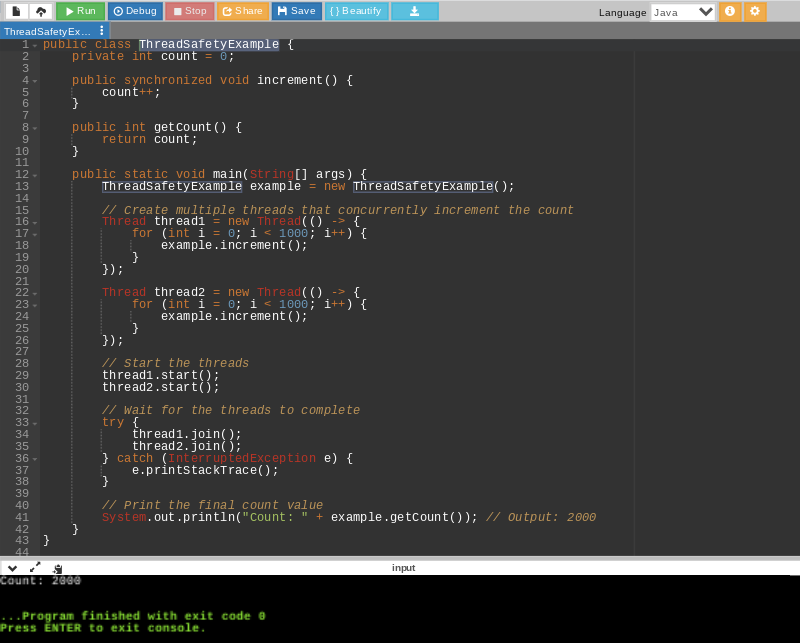Why Are Strings Immutable in Java? Protection and Performance Conveniences
Why Are Strings Immutable in Java? Protection and Performance Conveniences
Blog Article
What Is Unalterable Strings and Exactly How It Works
In the world of shows, recognizing the idea of immutable strings is vital for creating safe and robust applications. Immutable strings refer to strings that can not be changed after they are created, guaranteeing information honesty and predictability within the code. This basic concept plays a vital role in different programming languages and uses a special approach to taking care of information. By checking out the intricacies of just how immutable strings function, one can uncover a globe of advantages and possibilities that can boost the quality and efficiency of software application advancement.
The Essentials of Immutable Strings
Immutable strings, as a basic principle in shows, are character sequences that can not be transformed when they are developed. This indicates that when a string is appointed a value, that value can not be altered. In languages like Python and Java, strings are unalterable objects, resulting in numerous implications in terms of memory monitoring and data stability.
Among the crucial benefits of unalterable strings is that they supply a complacency in information control. Because the web content of an unalterable string can not be modified, it ensures that the initial information stays intact, minimizing the danger of unplanned adjustments during program execution (Why are strings immutable in Java?). This building additionally streamlines debugging procedures, as developers can rely on that when a string is specified, its worth will not be accidentally altered
Additionally, unalterable strings assist in efficient memory usage. When a new string is created based upon an existing one, as opposed to customizing the initial string, the new worth is stored independently. This method enhances efficiency by minimizing memory fragmentation and simplifying memory appropriation processes. Generally, comprehending the basics of unalterable strings is vital for mastering programs principles and enhancing code efficiency.
Benefits of Unalterable Strings
Building upon the safety and efficiency advantages of unalterable strings, their benefits include boosting code integrity and streamlining concurrent programming jobs. By being unalterable, strings can not be changed after development, which gets rid of the threat of unintended changes in the data they save. This intrinsic immutability makes sure that once a string is produced, its worth continues to be continuous throughout the program's execution, lowering the chances of insects triggered by unexpected alterations.
Furthermore, immutable strings contribute to code reliability by making it simpler to reason regarding the state of a program. Since strings can not be transformed, designers can rely on that a string will constantly hold the exact same value, simplifying debugging and upkeep initiatives. This predictability brings about a lot more secure and reliable codebases.
Implementation in Programming Languages
Within numerous programs languages, the unification of immutable strings is an essential element that influences exactly how information is dealt with and adjusted within code frameworks. The implementation of immutable strings varies across various shows languages, with each language webpage offering its very own devices to support this principle.

On the other hand, languages like C and C++ do not have built-in support for immutable strings. Designers in these languages have to by hand execute immutability by applying regulations within their code to avoid direct alterations to string objects.
Best Practices for Collaborating With Unalterable Strings
When dealing with unalterable strings in programs languages like Java and Python, adhering to ideal techniques makes sure protected and efficient information adjustment. Among the key finest methods is to utilize StringBuilder or StringBuffer instead of directly adjusting strings, particularly when managing substantial concatenation procedures. These classes provide mutable options for string manipulation, assisting to stay clear of unneeded memory allocations and improving efficiency.
In addition, when functioning with delicate data such as passwords or API keys, it is vital to stay clear of storing them as plain text in immutable strings. Utilizing protected storage systems like char selections or specialized libraries for taking care of sensitive information aids mitigate safety threats associated with immutable strings.
Real-world Applications and Examples
Discovering sensible implementations of immutable strings in various industries discloses their substantial effect on data stability and system reliability. In the health care field, unalterable strings play an important duty in making sure the safety and security and discretion of patient data. By stopping unauthorized modifications to delicate information such as clinical records and prescriptions, immutable strings assist preserve compliance with rigorous privacy regulations like HIPAA.
Economic organizations likewise take advantage of the unalterable nature of strings to enhance the protection of client data and purchase records. Immutable strings help stop fraud and unauthorized changes to economic info, offering a robust defense against cyber hazards and guaranteeing find more info the trust and self-confidence of customers.

Verdict
In conclusion, unalterable strings are fixed and unchangeable sequences of personalities that supply benefits such as string security and boosted performance in programs. They are applied in different shows languages to guarantee information stability and safety. Finest methods for functioning with immutable strings include avoiding straight adjustments and utilizing techniques that return new string things. Real-world applications of unalterable strings consist of data encryption, caching, and string manipulation tasks.
Unalterable strings refer to strings that can not be altered after they are produced, making sure data integrity and predictability within the code. When a new string is developed based on an existing one, rather than changing the original string, the new worth is saved separately.In languages like Java Click This Link and Python, strings are unalterable by default, meaning that as soon as a string object is created, its worth can not be altered - Why are strings immutable in Java?. Ideal practices for working with immutable strings consist of staying clear of direct modifications and making use of techniques that return new string things. Real-world applications of immutable strings include information security, caching, and string manipulation tasks
Report this page